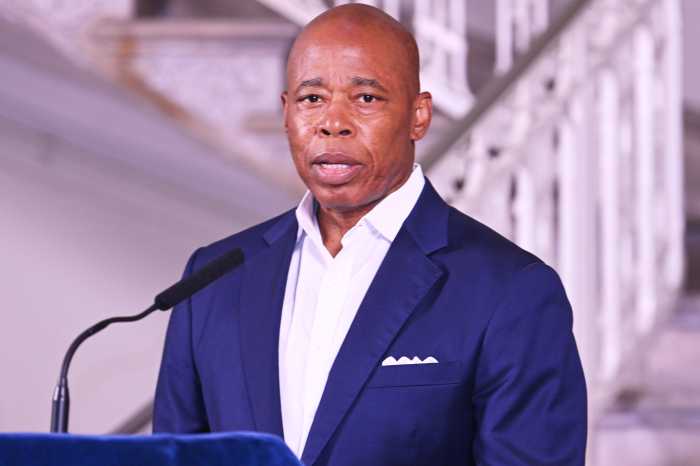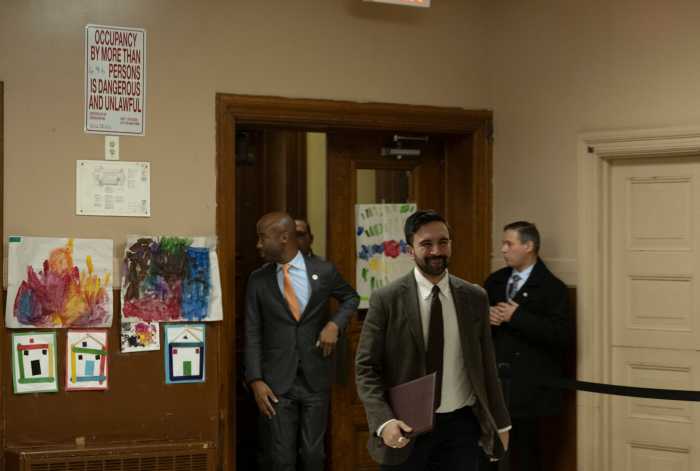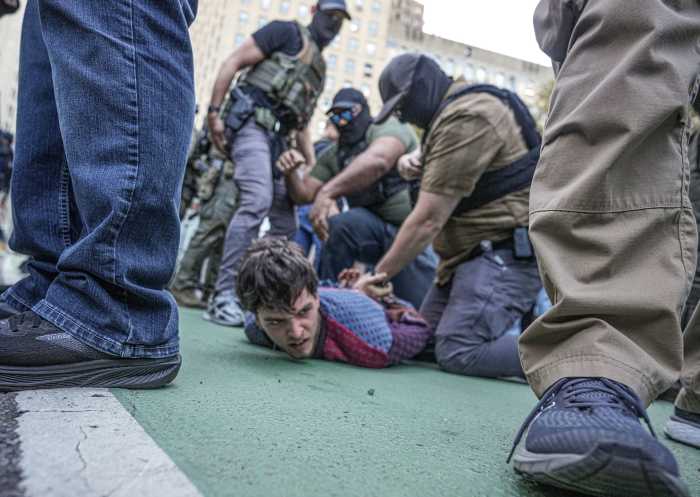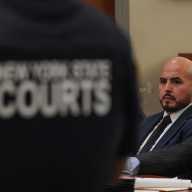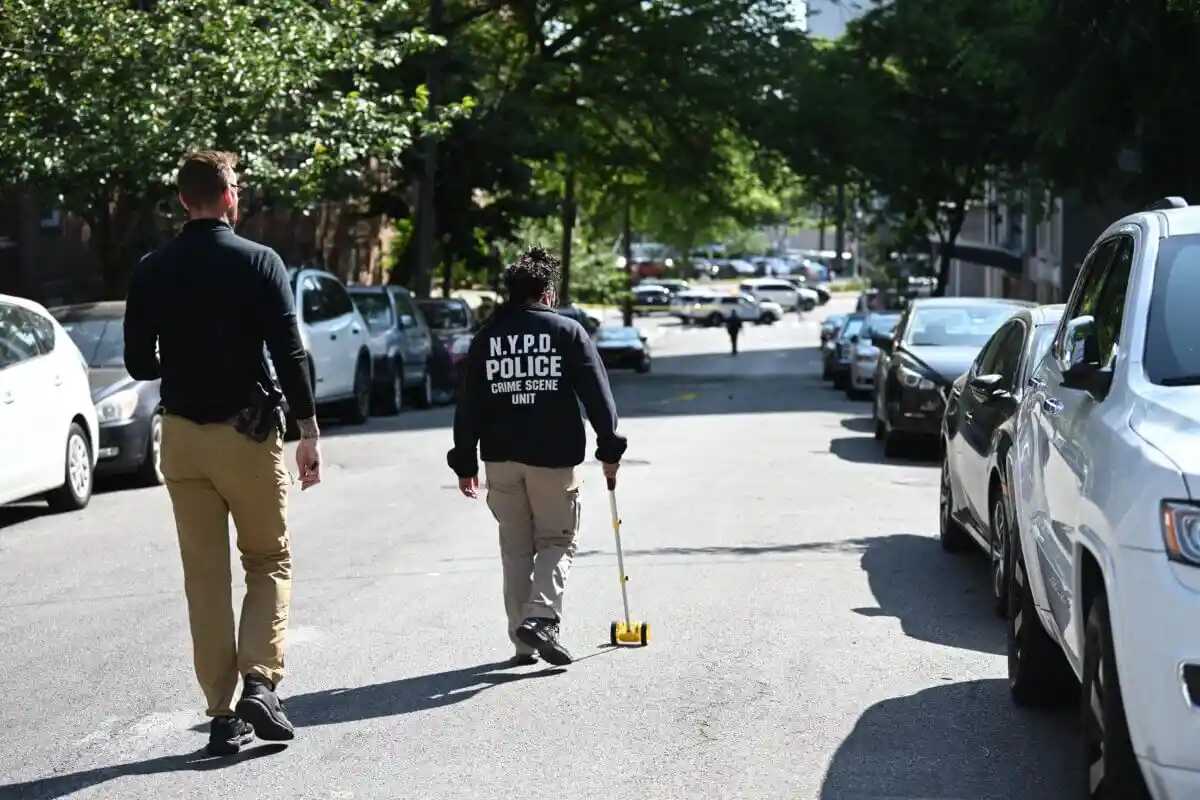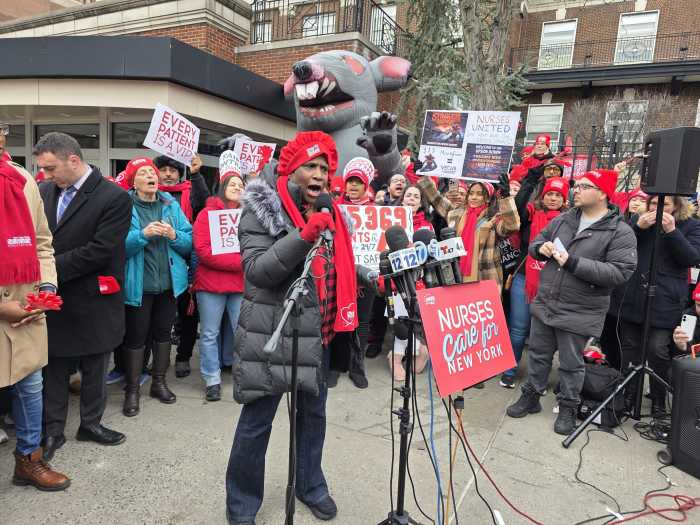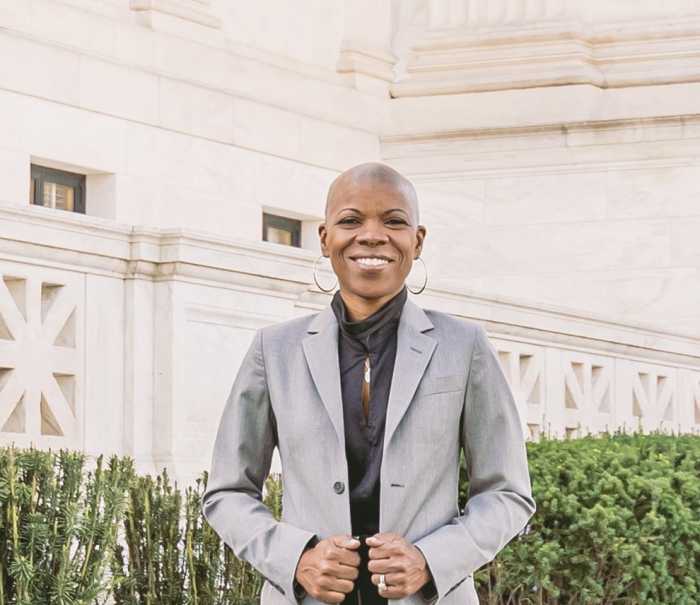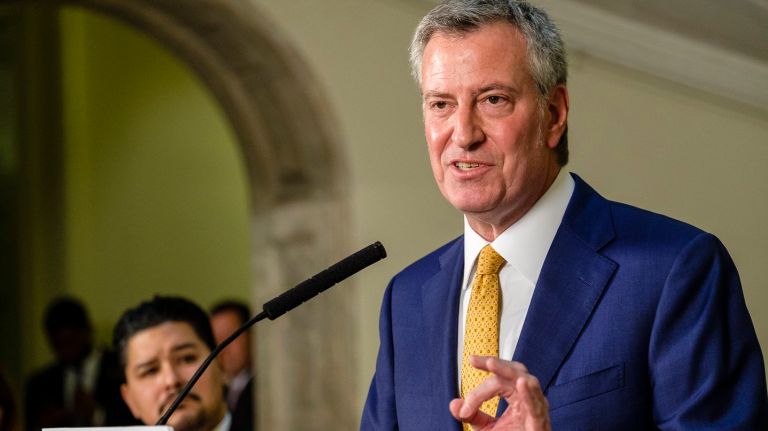
Mayor Bill de Blasio called for a more independent media presence in New York City on Friday, one day after the release of emails that showed his frustration with how news outlets cover his administration.
Standing in front of reporters at City Hall, the mayor acknowledged the “crucial role” news media play in society, but doubled down on many ideals that were revealed in the emails released on Thursday.
“Corporate media comes with biases, and we just have to be honest about it,” de Blasio said. “We need a more strong, independent media that focuses more on everyday people.”
Promising an “honest conversation” with reporters, some of whom had been the focus of the mayor’s ire in the newly released emails, de Blasio argued that tabloid culture is bad for the city but added his view on the matter predates his time in office.
“I believe there is an orientation in each media outlet,” de Blasio said. “Thirty years ago I felt the same things I’m saying to you now. This is not a news flash.”
The mayor had fought to keep the emails — totaling more than 4,200 pages — from public view for years, but was forced to turn them over after losing an appeal to a lawsuit brought by NY1 and the New York Post related to a Freedom of Information Act request.
The publications had sought email correspondence between the mayor’s office, Jonathan Rosen and other advisers at the political consulting firm BerlinRosen, which had been hired by de Blasio’s controversial political nonprofit Campaign for One New York.
Deeming the consultants at BerlinRosen “agents of the city,” de Blasio had argued the emails were confidentially protected under the law. But on May 1, an appeals court ultimately upheld an earlier decision from the state Supreme Court siding with the two publications.
In an email sent to media outlets on Thursday, de Blasio’s press secretary, Eric Phillips, said the administration would no longer fight the lawsuit.
“We have chosen to forgo our right to seek a higher appellate court review of the previous decision,” Phillips wrote.
The emails span from Jan. 1, 2014, through Dec. 31, 2017. Here’s a look at some of the most headline-worthy information that has been released.
De Blasio obsesses over media image
One of the biggest take-aways from the emails was the mayor’s preoccupation with the way he is portrayed in media coverage.
In one particular email making the rounds on social media Thursday, de Blasio lambasted negative media coverage he faced after going to the gym while the NYPD and FDNY responded to a standoff on Staten Island, where a firefighter was shot, as “pitiful.”
He went on to outline a series of steps that needed to be taken to avoid a similar misstep in the future and concluded with this encouraging phrase: “They will never defeat us. Only we can do that. Let’s get tighter, clearer, faster, better.”
While speaking to reporters on Friday, de Blasio said the “they” he was referring to was the “power of the status quo” and not the New York City news media.
“Do I think the main stream media is reinforcing the status quo in the world view? Yea, and I’m not the only one who views it that way,” he added.
The mayor lamented that his frustration often comes from a place where he feels media outlets focus too heavily on negative news and not enough on positive changes that are impacting New Yorkers.
“I think the media should be uncovering the truth and the truth can be positive and the truth can be negative,” he said. “I don’t think the proportions are right.”
De Blasio appears to call police union leaders ‘bastards’
It wasn’t just the media de Blasio criticized when he got pushback for going to the gym after a firefighter was shot on Staten Island.
De Blasio says he had gotten support from a union for fire officers and some elected officials, but anticipates attacks from the Sergeant’s Benevolent Association president, Ed Mullins, and the Patrolmen’s Benevolent Association president, Patrick Lynch.
“I need a scorecard tmrw re: who was a friend and who was cheap,” he wrote in an email. “I know this too shall pass, but let’s deal with these bastards.”
In a statement Thursday, Lynch said he wasn’t surprised by the email.
“If speaking up when the Mayor falls down on the job — including his failure to offer fair pay and fair treatment for New York City police officers — makes us ‘bastards,’ we’ll gladly accept that spot on the Mayor’s scorecard,” he said.
Cuomo-de Blasio feud
In a series of emails in June 2015, de Blasio congratulated his team for “good thinking” and “good coaching” on how best to criticize to Gov. Andrew Cuomo for what he perceived to be slights against the city as acts of “revenge.”
Referencing a media report on de Blasio’s comments against the governor, then-chief of staff Thomas Snyder wrote it was “almost more than we could hope for.”
“Positions Mayor as voice of the dems and eviscerates the gov. Grand slam,” Snyder wrote.
De Blasio agrees to do town halls to get the media off his back
After the Gotham Gazette wrote the article “Is It Time For The Mayor To Do Town Halls?” in August 2015, de Blasio wrote an email to staff and advisers saying he is thinking about scheduling the meetings to stop the media from writing about it.
“I’m so sick of this meme that I’m thinking of just scheduling town hall mtgs so these guys can’t write about it anymore… Pls discuss at next planning mtg,” he wrote.
About two months later, the mayor held his first town hall meeting since his election.
With Matthew Chayes and Nicole Brown
Check back with amNewYork for more on this developing story.




